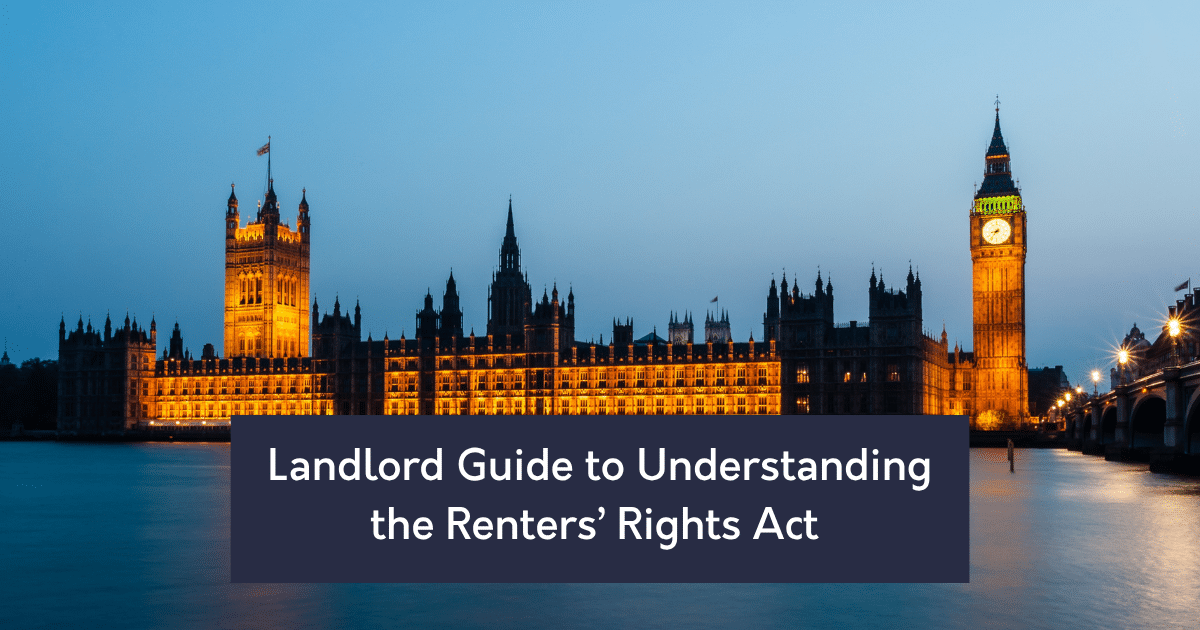As of October 2025, the Renters’ Rights Bill has now received Royal Assent, marking the start of the implementation process and giving us certainty about the changes that will be made. The new Act brings significant changes that Haslams has been preparing for and will help our landlord clients navigate, from the end of Section 21 evictions and Assured shorthold tenancies to the introduction of a National Landlord Register.
Whether you own one property or a portfolio, this guide offers clarity on what’s changing, as we help you stay ahead of the curve and continue to provide compliant rental accommodation for your tenants.
The following will become enforceable from the effective date:
New system of tenancies
- Existing ‘Assured shorthold’ tenancies will become open-ended ‘periodic’ tenancies when the law comes into effect, not when the fixed term was due to end.
- Landlords must provide tenants with information notifying them about the changes (yet to be detailed by the government). Haslams will do this for our Managed clients.
- Fixed term tenancies will be banned; even where the landlord and tenant both want one.
- Non-Assured shorthold tenancies (i.e. company lets, those where rents exceed £100K per annum or short lets) will not be affected by the changes.
Deposits
- Deposit limits will remain the same: five weeks where the annual rent is less than £50K; six weeks where it exceeds £50K.
- Deposits can still be accepted before a tenancy agreement has been signed, but rent can only be accepted after a tenancy agreement has been signed.
Rent & Rent Increases
Rental periods
- Rental periods contained in a tenancy must be one month or less. Where a tenancy contains a lengthier period, this will be deemed to be for a one-month period at a monthly rent.
Rent in advance
- Tenants can still pay rent in advance but only voluntarily and only during the tenancy, not before it starts. Landlords cannot ask, or make it a condition of granting a tenancy, that the tenant pays more than one month’s rent up front.
Rent increases
- Rent increase/review clauses in tenancy agreements will be prohibited.
- Rent can only be increased once within each 12-month period using the Section 13 process. Landlords must give tenants at least two months’ notice of a proposed rent increase. Landlords cannot increase rent any other way.
- Where a Section 13 notice has been served and the tenant does not respond, the rent increase will automatically take effect after the two-month notice.
- Once a Section 13 notice has been served:
- Landlords and tenants are free to agree a rent increase. Agreement must be in writing and must be less than the amount of the increase proposed in the Section 13 notice; or
- Tenants can challenge the proposed rent increase by applying to the First Tier Tribunal (FTT). The FTT has jurisdiction to consider whether the rent increase being proposed is fair. Any decision by the FTT will take effect from the next rent due date after the date of its decision. The FTT will look at comparable market rents to assess if a proposed rent is fair.
- For Haslams Managed landlords, we will advise you regarding issuing a Section 13 notice in the same way as we currently do with Renewals. For the avoidance of doubt, Renewals will cease to exist as there will be no Fixed Term tenancies.
Marketing
- Landlords cannot accept a higher rent than the rent advertised during marketing, even if a prospective tenant offers to pay a higher rent.
- Tenants can challenge the rent level during the first six months of a tenancy by applying to the FTT.
Ending tenancies
Landlord
- The new and expanded grounds for possession will allow landlords to regain possession where they want to sell their property, undertake renovations or move back in themselves. The landlord cannot gain possession in the first 12 months of a tenancy.
- Possession can be obtained where the tenant has fallen into rent arrears or breached the tenancy agreement. The threshold for arrears has changed from 2 months to 4 months of unpaid rent (3 months with a 4-week notice period).
- Where a landlord serves notice because they want to sell or renovate their property, or move back in, they cannot re-let the property for 12 months after gaining vacant possession.
Tenants
- Tenants can end a tenancy at any time by serving two months’ notice.
- Tenants can withdraw their notice but only if the landlord agrees in writing.
Discrimination
- This is largely unchanged. Landlords cannot discriminate against tenants who are either in receipt of benefits or who have children.
- Landlords can still assess tenant affordability and are still allowed to carry out normal referencing for this purpose.
Pets
- Tenants can request permission to keep a pet at any point in a tenancy.
- Landlords must reply to any such request within 28 days and can only refuse permission where they can demonstrate it is reasonable for them to do so, e.g. because their headlease prohibits it.
These changes will come into effect once the Government has clarified how they will work:
Landlord Database
- All landlords will be required to join a landlord database.
- Information will include compliance information (proof of gas safety checks, etc)
- Where the property is marketed for letting, the listing must contain the landlord’s membership ID number.
New Ombudsman
- Landlords will need to join a new Landlord Ombudsman.
- Tenants will be able to complain directly to the Ombudsman where issues have not been resolved e.g. where the landlord has failed to make repairs in time or at all.
This new Ombudsman is additional to the Property Ombudsman which only covers complaints about the agent, not the Landlord.
Decent Homes Standard and Awaab’s Law
- Properties will need to meet set standards of condition.
- Under Awaab’s Law, damp and hazards will need to be resolved by landlords quickly and in set time limits, otherwise fines may be levied.
We do not know the exact timescales for these policy changes.
Next steps
We will keep our clients in touch as more detail is released. The good news is that now we have certainty about the start date of the Renters’ Rights Act, and we will now put our preparations into action. Please contact us with any questions – we are here to help you stay successful through the RRA.

